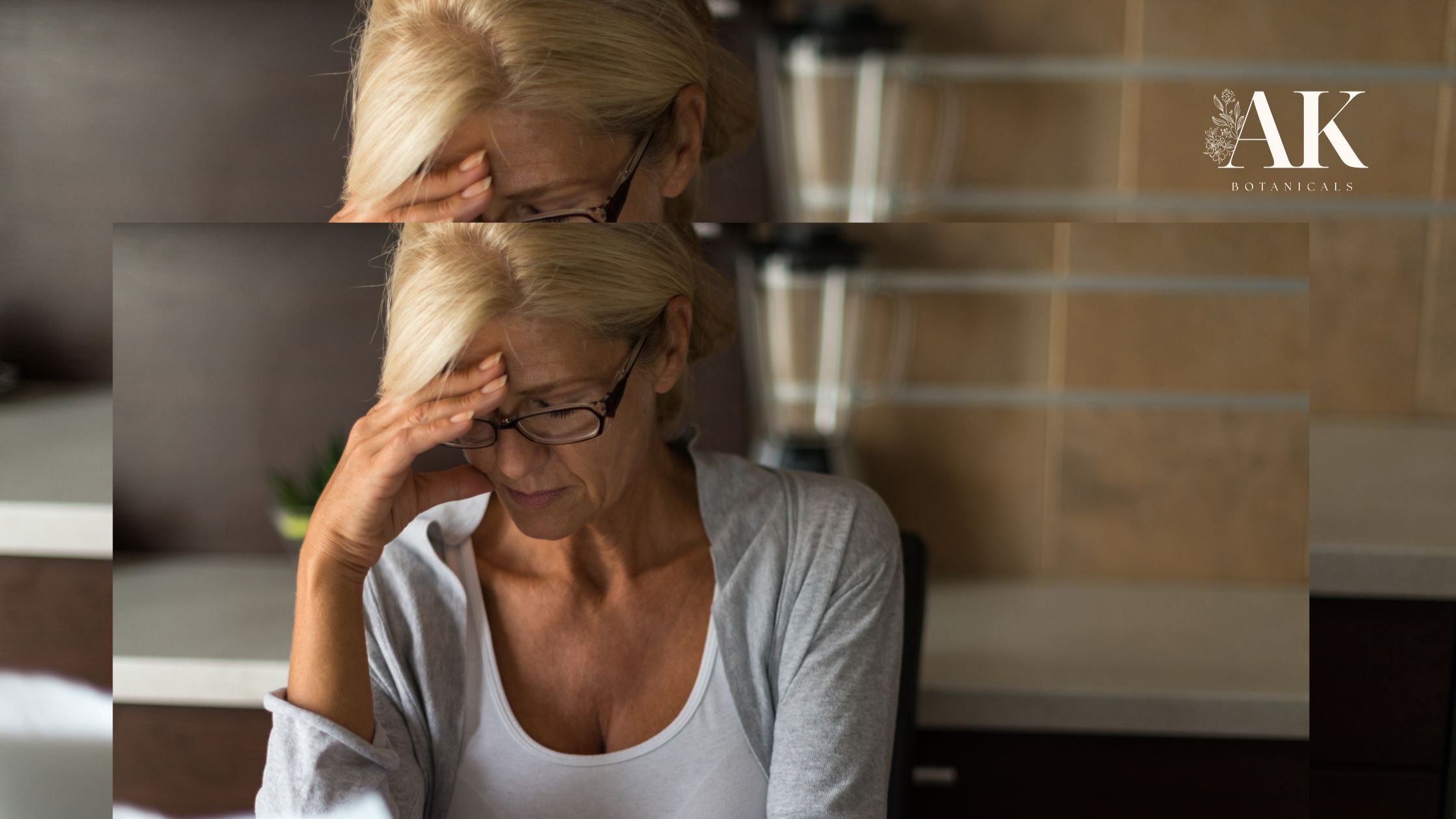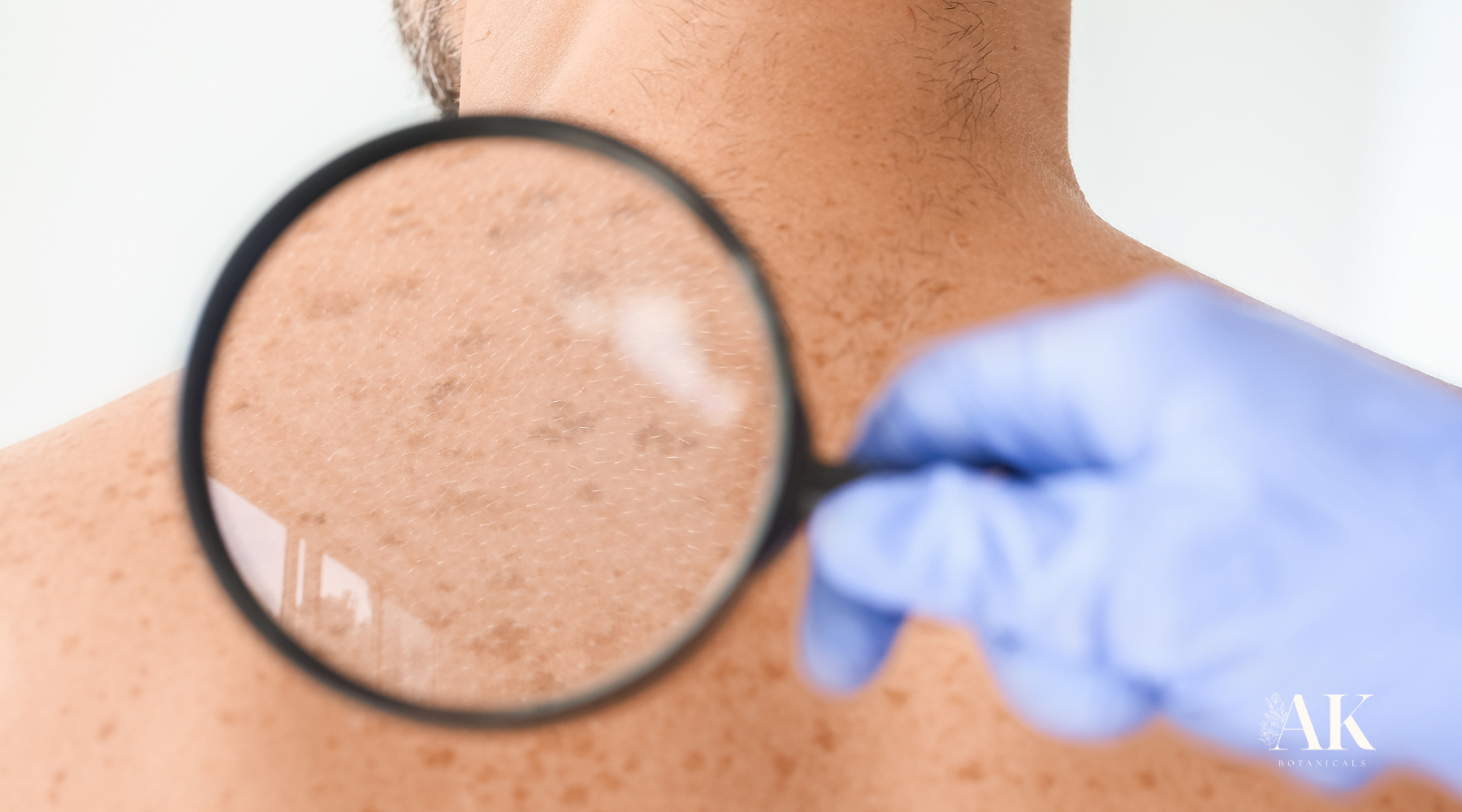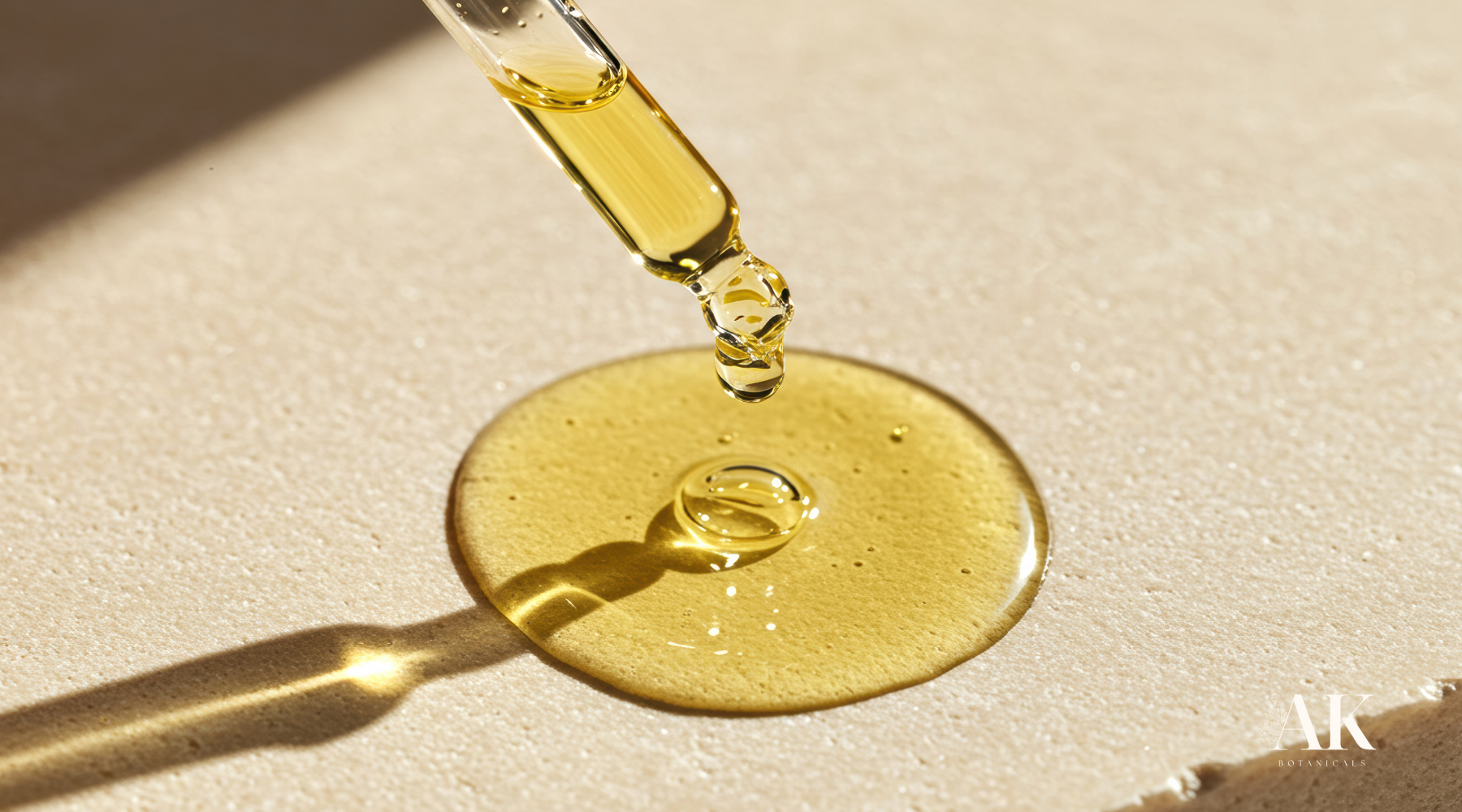
What No One Tells You About Hearing "You Have Actinic Keratosis"
There’s a specific kind of silence that follows a moment like this—the moment your doctor tells you that you have actinic keratosis. It doesn’t sound quite as terrifying as skin cancer, and yet, the gravity lingers.
You're still in the exam room, maybe sitting awkwardly in a paper gown, and the words come out casually, clinically: “You have actinic keratosis.”
Maybe the doctor explains—AK is caused by long-term sun exposure. It’s not cancer yet, but it could become skin cancer like squamous cell carcinoma if left untreated. You hear “precancerous,” “sun damage,” “nothing to panic about.” But that’s not what sticks.
What you actually heard was: You might get cancer.
The Hidden Grief of an Actinic Keratosis Diagnosis
No one talks about the quiet grief that comes after hearing those words. It’s not just fear—it’s a mourning of the carefree version of yourself. The one who loved the sun. The one who didn’t think twice about skipping SPF. That person feels distant now. Maybe even foolish.
Suddenly, those moments in the sun—simple, happy memories—feel like silent risks you didn’t know you were taking. And that stings.
But maybe you weren’t that person.
Maybe you were the one who did everything right.
You avoided the sun. You wore the hats. You applied the sunscreen. You stayed in the shade. And yet… here you are. With actinic keratosis. And to make things even more confusing, now you’re being told that you should be getting some sun for vitamin D or overall health.
It’s a kind of betrayal either way. A strange contradiction. A sense that your skin—your largest organ, your protector—has been quietly recording every choice, every exposure, every effort… and now, without warning, it’s speaking up. Not with words, but with small, rough patches. With lesions. With warnings.
Shock and Anxiety: Facing the Risk of Skin Cell Damage
Receiving an actinic keratosis diagnosis can be emotionally taxing. With 85% of people unaware of actinic keratosis—the most common precancerous skin condition—the news often comes as a shock. The term "precancerous" frequently triggers anxiety, as individuals grapple with the implications for their health. Concerns about the potential progression to skin cancer, especially squamous cell carcinoma, and the need for ongoing monitoring and treatment can be overwhelming.
Body Image and the Visible Signs of Keratosis on Skin
Actinic keratosis (AK) lesions, particularly when they appear on highly visible areas such as the face, scalp, or hands, can have a profound impact on self-esteem and body image. These skin lesions might make you feel self-conscious, embarrassed, or even ashamed of your appearance, which can lead to social withdrawal or decreased confidence. The psychological burden makes emotional support just as essential as medical treatment, including consistent follow-up and personalized treatment plans.
This emotional toll isn’t just anecdotal. Research confirms it. A study published in Actas Dermo-Sifiliográficas, a dermatology journal, found that AK significantly affects a person’s emotional state and quality of life—especially for those with multiple lesions. The psychological burden makes emotional support just as essential as medical treatment.
What many don’t talk about is the emotional weight actinic keratosis carries. The term “sun damage” can feel like a quiet judgment—like you did something careless. But this isn’t about shame. Our culture glamorized tans and downplayed risks. If you grew up in the era of tanning oils and SPF 4, you weren’t reckless—you were following the norm.
Still, that doesn’t take away the sting of the diagnosis and ongoing treatments, which may vary from cryotherapy to topical treatment depending on severity.
The Weight of “What If” in Living with Precancerous Skin Cells
Actinic keratosis is a strange kind of limbo. It’s not cancer, but it’s not “nothing.” It’s like standing at the edge of a cliff with the knowledge that you might fall—or you might not.
That “might” becomes a cloud that hangs over you. Every time you look in the mirror and see a new spot. Every time you feel something slightly raised. Every time your skin feels dry in a way it didn’t before. The worry whispers: Is this a new lesion? Has it turned into skin cancer? Do I need treatment?
You find yourself Googling terms like “basal cell carcinoma,” “mole,” “skin lesion removal,” or “skin tags” late at night. You analyze shadows and bumps, wondering if you need another removal or perhaps even surgery or any type of treatment. You’re not being dramatic. You’re being human.
Guilt and Regret: The Emotional Toll of Skin Exposure
Many patients reflect on past sun exposure habits with regret. Memories of sunbathing without protection or neglecting sunscreen use can lead to feelings of guilt. But, it's important to recognize that societal norms and a lack of awareness often contribute to these behaviors. A diagnosis of actinic keratosis is not a moral failure—it’s a call for care and treatment.
It’s hard not to blame yourself. You replay every time you forget sunscreen. Every time you tan. Every beach day you didn’t reapply. Society made it normal—even aspirational—to be sun-kissed. You weren’t reckless. You were living. But that doesn’t keep the shame away.
You might not even tell people. It can feel embarrassing to admit. You don’t want to sound dramatic—because it’s “just” sun damage, right? But it doesn’t feel small. It feels like a warning. A reckoning.
How Actinic Keratosis Shifts Your Relationship With Your Skin
One of the hardest parts of getting a diagnosis like this is the way it changes your relationship with your skin. You begin watching it not with admiration but with suspicion. That mole you loved? Now you wonder if it’s part of a growing problem. Those rough patches? Are they more actinic keratosis, or something else? When should you look for treatment?
You might find yourself covering up more. Wearing hats, long sleeves. Avoiding mirrors. Or staring too long into them. This isn’t vanity—it’s vigilance. But it can still make you feel like your body is no longer yours. It has become something you have to manage.
No One Prepares You for the Loneliness of Skin Cell Risk
There’s a profound isolation in having something that might become cancer. You’re not a cancer patient, but you’re not entirely “fine” either. It can feel incredibly lonely. People around you might not understand the fear. But you do. Your fear is valid. This is your health, your skin, your future.
And yes, it's okay to grieve.
Finding Strength After an Actinic Keratosis Diagnosis
But here’s something else no one tells you: there is strength in facing these emotions. In staying vigilant. In taking your fear seriously enough to care deeply for yourself. In asking about your treatment options, whether that’s cryotherapy, topical cream, or even removal if needed.
You may not have chosen this diagnosis, but you are choosing how to respond to it, and what type of treatment to follow. That matters. That’s courage.
What Comes Next: Treating Actinic Keratosis and Protecting Your Skin Cells
The good news? Actinic keratosis is treatable. Whether your dermatologist suggested cream, cryotherapy, or lesion removal, the goal is always prevention—selecting a treatment option and eliminating these patches before they potentially become basal cell carcinoma or another form of skin cancer.
For many, treatment is not just about addressing one spot—it’s about creating a long-term skin health plan. That includes regular dermatology visits, broad-spectrum SPF, and gentle products that soothe damaged skin.
Exploring AKti-Clear: At-Home Alternative for Managing Actinic Keratosis
While traditional treatments like cryotherapy, laser therapy, and prescription creams are effective, they can sometimes feel intimidating or come with uncomfortable side effects like redness, peeling, or sensitivity. That’s where AKti-Clear steps in—a dermatological skincare formula designed to support those living with actinic keratosis in a more holistic, non-invasive way.
AKti-Clear was created with a mission: to offer a simpler, more accessible way to care for sun-damaged skin. Formulated with a blend of anti-inflammatory agents, skin-repairing botanicals, and ingredients shown to promote cell turnover, our topical solution aims to reduce the appearance of rough, scaly patches while helping removeirritated skin.
It’s not meant to replace medical treatment—but rather to complement it, especially for those seeking additional support between dermatology visits or exploring proactive skin maintenance after a formal diagnosis.
What makes AKti-Clear different?
- It’s non-prescription
- It’s made for long-term support of skin exposed to years of UV damage.
- It puts you in control, offering an at home solution that doesn’t feel clinical—but still delivers results.
Choosing how to manage your skin condition is personal. AKti-Clear gives you another option—one rooted in care, backed by science, and built for real life.
As always, talk to your dermatologist before starting any new treatment. But know this: options exist. Empowerment begins with awareness, and support starts with solutions that meet you where you are.
Finding Peace (and Power) in Skin Care After Keratosis
At AK Botanicals, we believe in transforming fear into empowerment. Finding out you have actinic keratosis is never easy, but it can be a turning point. It can be the moment you begin treating your skin with the care it deserves—not out of fear, but out of love.
Because healing isn’t just medical. It’s emotional. It’s a deep breath after the diagnosis. The morning you reach for your SPF without thinking. The day you book that dermatology appointment or talk to your doctor about a suspicious lesion.
You are not alone in this. And your skin deserves grace, not guilt.
If you need support, information, or just someone who gets it, explore the resources below:
Skin Cancer Foundation – Understanding AK
American Academy of Dermatology – Patient Stories
Mental Health America – Coping with Health Anxiety




